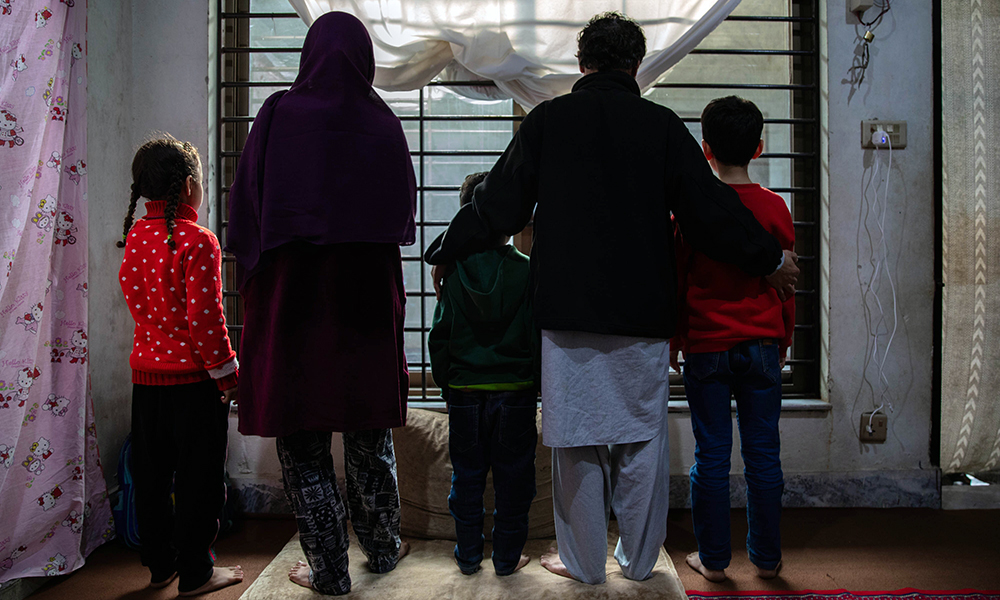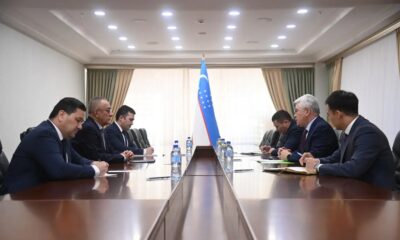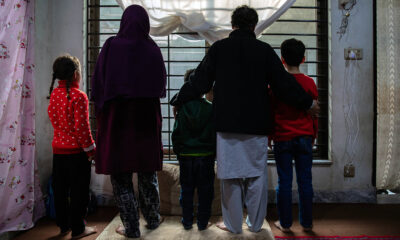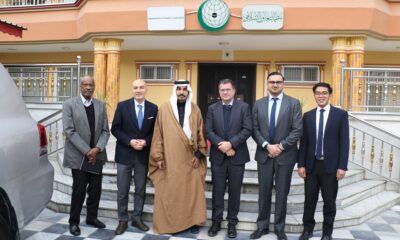Latest News
One-third of Afghan population facing acute food insecurity

One-in-three Afghans are acutely food insecure, according to the latest Integrated Food Security Phase Classification (IPC) assessment report released by the Afghan government and its partners on Tuesday.
According to the IPC report, food insecurity in Afghanistan is attributed to the lingering impact of COVID-19, armed conflict, a rise in food prices, high unemployment rates and income loss, and the start of the complex and recurrent La Niña weather event.
“With doubling of our focus on mitigating adverse effects of COVID-19 on the most vulnerable, we have managed to bring the numbers down from a projected 42 to 35 percent, which is an achievement, however this is still far from our vision of a hunger-free Afghanistan,” said the Minister of Agriculture, Irrigation and Livestock of the Government of the Islamic Republic of Afghanistan, Anwarul Haq Ahady.
“A third of our people are struggling to feed their families. We must not let our guard down in light of the challenges ahead, specifically the drought-like effects La Niña is already triggering across the country, and the Government is preparing to respond to the impending drought”, he said.
While the Government prepares its response to an impending drought, the Food and Agriculture Organization of the United Nations (FAO) and United Nations World Food Programme (WFP) warn that current resourcing is inadequate to protect lives and livelihoods at risk.
“Millions of Afghan families already struggle to survive, and now they face the second drought in three years. A bag of wheat is 30 percent more expensive than the four-year average. Jobs are few and far between,” Mary-Ellen McGroarty, WFP Representative in Afghanistan said.
“The lean season is expected to arrive earlier and bite harder. We need to act now, bring food closer to people’s homes, and prevent irreversible malnutrition in mothers and children who will be impacted the most. We simply cannot wait and see.”
However, significant funding gaps for humanitarian agencies pose a challenge in meeting even the most basic humanitarian needs in the coming months, the report stated.
While the onset of the summer harvest may bring employment and improve access to food, the report warns the harvest is expected to be “below average” and the “food security situation is expected to deteriorate further during the 2021-2022 lean season”.
A further deterioration of the food security context will push more people to join one third of the population already food insecure.
“In order to understand the IPC report figures, we need to take into account two things. First, this analysis was conducted before any of the drought-like effects could be felt. Second, the projection period coincides with the harvest season, but the most serious effects of the lower rain and snowfall are affecting agriculture and livestock production with cascading food security impacts during the subsequent lean season.
“These figures actually call for immediate action that mitigates the impacts on agriculture and livestock production and prevents rural people from abandoning their agriculture-based livelihoods and displacing to urban areas,” said Rajendra Aryal, FAO Representative in Afghanistan.
La Niña drought-like effects are already evident in Afghanistan, according to FAO.
Early evidence of agricultural drought has been found in 25 hotspots across the country. This weather event is expected to severely affect both agricultural and livestock production in 2021.
According to FAO estimates, wheat production decreased by 16 to 27 percent in the last five drought events induced by La Niña; the potential impact on livestock production of this year’s event is expected to affect 30 percent of ruminants in 18 provinces.
Latest News
Pakistan to repatriate nearly 20,000 Afghans awaiting US resettlement
Authorities will also share verified data of the affected individuals with relevant departments to support implementation.

Pakistan will repatriate nearly 20,000 Afghan nationals currently awaiting resettlement in the United States, The Nation reported, citing official sources.
The move affects 19,973 Afghans living across Pakistan.
A federal directive will instruct provincial chief secretaries and police chiefs in Punjab, Sindh, Khyber Pakhtunkhwa, Balochistan, Azad Kashmir, Gilgit-Baltistan, and the Islamabad Capital Territory to begin the repatriation process immediately.
Authorities will also share verified data of the affected individuals with relevant departments to support implementation.
Following the Islamic Emirate’s return to power in 2021, more than 100,000 Afghans fled to Pakistan, many of whom had worked with the US and UK governments, international organizations, or aid agencies.
Thousands have remained stranded in Pakistan for over four years while awaiting US resettlement clearance.
Prospects for relocation have dimmed amid a suspension of case processing by the US administration, according to The Nation.
Under Pakistan’s Illegal Foreigners Repatriation Plan (IFRP), all Afghan nationals still awaiting US relocation will now be returned to Afghanistan.
Latest News
Terrorist activities observed along Afghanistan borders, says Lavrov

Terrorist activities continue to be observed along Afghanistan borders and along the India–Pakistan–Afghanistan corridor, Russian Foreign Minister Sergei Lavrov said in an interview published on Monday.
Speaking to Russia-based media outlet TV BRICS, Lavrov pointed to ongoing concerns in the Middle East, including its Asian regions.
He highlighted the importance of collaboration with India at the United Nations to advance a global counter-terrorism convention.
Lavrov stated that while the draft convention has already been prepared, consensus on its adoption has not yet been reached.
Russia has repeatedly expressed concern about militant threats from Afghanistan. The Islamic Emirate, however, has dismissed the concerns saying that it will not allow Afghanistan’s soil to be used against any country.
Latest News
Afghan border minister holds phone talks with Iran’s deputy foreign minister

Noorullah Noori, Afghanistan’s Minister of Borders and Tribal Affairs, held a phone conversation with Kazem Gharibabadi, Iran’s Deputy Foreign Minister for Legal and International Affairs, to discuss bilateral border cooperation.
According to the Iranian news agency IRNA, both sides reaffirmed their commitment to strengthening border collaboration, with a particular focus on the ongoing renovation and updating of border markers. They also agreed to accelerate joint technical and legal meetings to enhance coordination.
As part of the agreement, the next meeting of senior border officials from Afghanistan and Iran is scheduled to take place in Iran in 1405 (2026–2027).
-

 Latest News2 days ago
Latest News2 days agoAfghanistan to grant one- to ten-year residency to foreign investors
-

 Latest News4 days ago
Latest News4 days agoTerrorist threat in Afghanistan must be taken seriously, China tells UNSC
-

 Sport3 days ago
Sport3 days agoIndonesia shock Japan to reach historic AFC Futsal Asian Cup final
-

 Sport4 days ago
Sport4 days agoMilano Cortina 2026 Winter Olympics: What You Need to Know
-

 Sport2 days ago
Sport2 days agoIran clinch AFC Futsal Asian Cup 2026 in penalty shootout thriller
-

 Latest News4 days ago
Latest News4 days agoUS Justice Department to seek death penalty for Afghan suspect in National Guard shooting
-

 Latest News4 days ago
Latest News4 days agoUzbekistan, Kazakhstan discuss cooperation on Afghanistan
-

 Latest News2 days ago
Latest News2 days agoAfghanistan says Pakistan is shifting blame for its own security failures
























